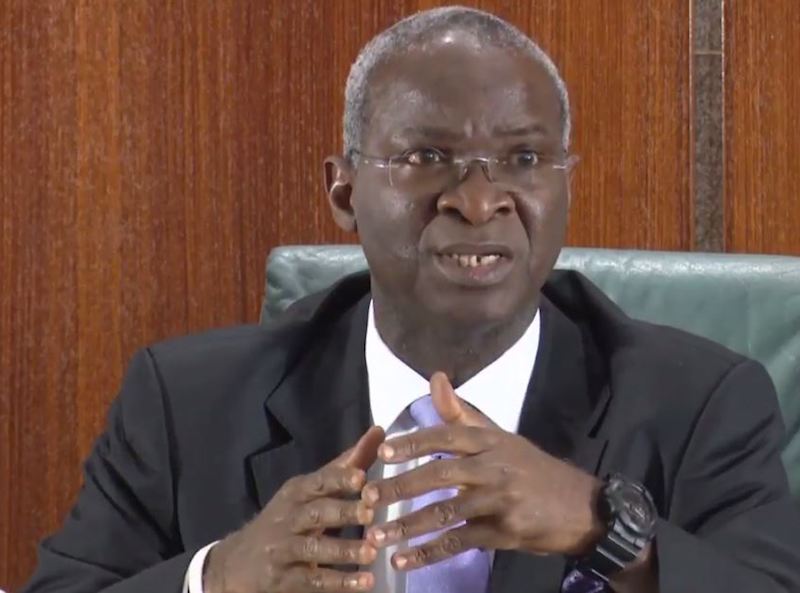The immediate past minister of works and housing, Mr Babatunde Raji Fashola, SAN, has said that the development of sports in Nigeria must not be left for sports administrators.
Rather, he said, it must involve the federal and state governments as well as all institutions of learning from primary schools to the university level.
Fashola stated this in his keynote address as a guest lecturer at the public presentation of the biography of a veteran sports journalist, Mr Mumuni Alao, who doubles as the Managing Director of Complete Communications Limited, in Lagos.
The address has as its theme, “Re-Thinking The Current Football Business Model In Nigeria As A Catalyst For Sports Development.”
Fashola said “the development of sports in Nigeria does not depend entirely upon Sports Administrators only, but also involves the Federal and States’ Government; all institutions of learning from the Primary Schools to University Levels should also have free periods for organised sports in their curricular…
“The National Sports Commission should be in a position to assist States’ Sports Councils in the provision of sports facilities and organisation of competitions.
READ ALSO: BREAKING: FG pardons KWAM 1, Emmanson, withdraws cases
“In addition to sizeable increase in subvention to the Commission, the Federal Military Government would make the work of the Commission easier by giving urgent attention to the following requests: The inclusion of the National Sports Commission in Decree No. 10 of 1971 so that Commercial Firms that make sizeable contributions to the Commission may benefit from some forms of tax relief; Removal of Import Duty on all items of sports kits and equipment ordered by the Commission; and the provision of training institute to allow the training of large numbers of Sports Organisers and Coaches.”
Fashola, who also served as the Governor of Lagos State from 2007 to 2015, added that the standard of sports in Nigeria at present was very low.
He said that had not always been due to lack of funds, of facilities or of organisation, but also to lack of national consciousness, which he said every competitor must have in order to exhibit the dedication and determination which were essential for success in competitions.
He observed that mass participation in Sports “as shown by research – enhances industrial production results in a virile and healthy nation, reduces child and adolescent delinquencies, enhances national prestige and is a potent weapon for promotion of unity in a country like ours.”
“Now that we have seen all of what has been done, what can be done, and still needs to be done, how do these general recommendations respond to Mumini Alao’s concerns about the ownership of football clubs by states and their sustainability, and how to get Nigerian spectatorship back into the stadia?
“The first thing to say is that modern arenas – with multi-purpose functions, will attract people, increased media coverage, safe parking, reliable transport services into and out of the venue, and the safety of the patrons and their families – will assure them.
“Simple raffle draws at half-time, using the ticket numbers to give token prizes like jerseys, useful devices like smartphones and souvenirs, but certainly no cash are options that can be considered as creative incentives.
“Governance, regulation, planning and calendarization are investment assurances and incentives for sponsorships.
“Most clubs around the world have supporters within the local communities and outside who own part of the clubs,” he said.
He noted that the time had come for those state-government-owned clubs to divest themselves of most or all of their shares and sell them to public under advice from those who had expertise in privatization not for self-serving purposes but to real business and sports minded concerns and supporters who would have a corporate governance and be subject to audits and company laws.
He said that in the effort to build ownership and by extension followership, support and ultimately brand identity, existing state-owned clubs must project a brand that people want to identify with and that varied across board from state to state.














